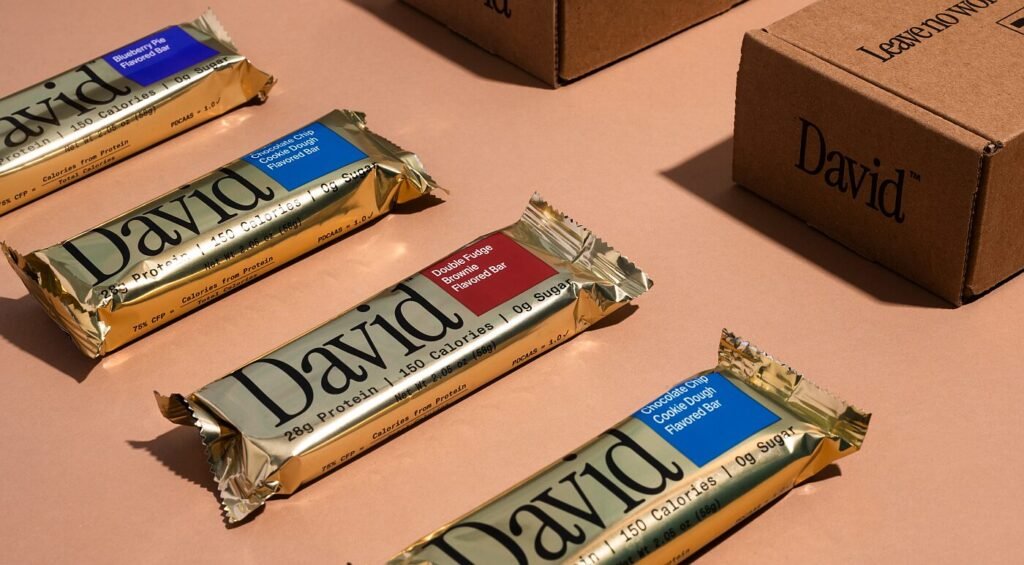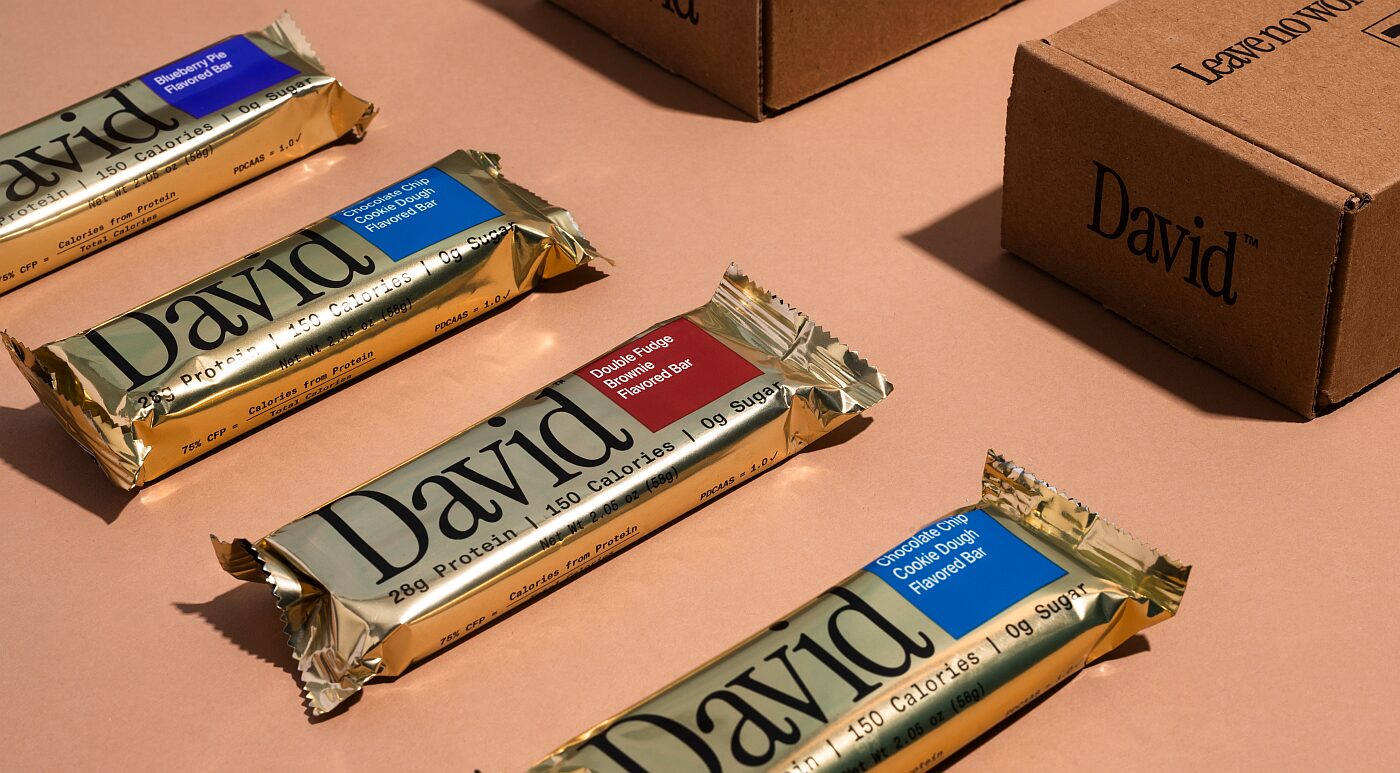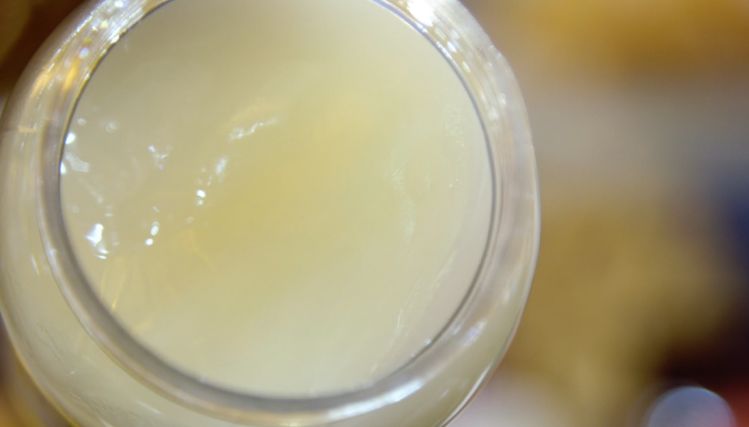
David—a protein-packed bar brand built by RXBAR founder Peter Rahal—has raised $75 million in a Series A round. The bulk of the capital will be used to fund the acquisition of Epogee, a foodtech startup making a plant-based oil called EPG that looks and behaves like fat but contains a fraction of its calories.
The round, which was led by Greenoaks with participation from Valor Equity Partners, brings David’s post-money valuation to $725 million and will also fund its rapid expansion across multiple channels and ongoing innovation work, said Rahal, who launched David last September and is predicting revenues of $140 million in year one.
“I think that probably makes us one of the fastest growing food brands in history.”

EPG: Looks and behaves like fat, with a fraction of the calories
To make EPG (esterified propoxylated glycerol), which can be listed on food labels as ‘EPG (modified plant-based oil),’ Epogee splits plant-based oils such as canola into glycerin and fatty acids, inserts a food-grade link, and reconnects them.
As EPG is resistant to lipase, an enzyme that breaks down fat in the body, hardly any of its calories are released. For context, 1g of fat contains 9 calories, while 1g of EPG contains just 0.7 calories.
This proved highly appealing to a brand such as David, which seeks to reduce the percentage of energy coming from fats and carbohydrates in its protein-fueled bars.
Unlike Olestra, which had a lower melting point (and messy side effects) or fat replacers made from sugars, gums, starches or fibers, EPG functions like fat both in food products and in the human body because it’s made from fat, Rahal told AgFunderNews.
“David accounts for about 90% of Epogee’s revenue, so securing supplies of EPG is mission critical for us. We wanted to de-risk things and control the supply to ensure we have enough EPG to support our business and our growth as our demand occupies all of Epogee’s capacity for the short term.
“Acquiring Epogee also really widens the aperture of our vision and our ability to address consumer different consumer needs across different populations.”
David will retain Epogee’s team and run it at arm’s length as a subsidiary, he said. “But given our growth, we need it to be serving David as a customer.”

Ultra-processed food?
While protein is trending across multiple food categories, David has been laser-focused on developing formulations that ensure the bulk of calories (75%) come from protein, said Rahal.
While this means using some ingredients that might not belong in Grandma’s kitchen cupboard, from EPG to sucralose, allulose, and maltitol, David’s success demonstrates that consumers will tolerate so-called “ultra-processed” foods if they see a clear benefit, he claimed.
“We advocate a balanced whole food diet, but our products are tools enabling you to get your protein without big caloric consequences. People don’t want to eat too many calories or spike their blood sugar in order to get the protein they need.”
Like many protein-fueled brands, David has also been able to tap into the GLP-1 craze, as people on these medications are especially concerned about losing lean muscle mass, he said.
“If you take GLP-1, your doctor’s advice is do resistance training and eat adequate amounts of protein. Our value proposition is totally aligned with this messaging.”
The TikTok effect
David began life online as a direct-to-consumer brand, expanded onto Amazon, and is now building a presence in brick-and-mortar retail, said Rahal.
While today’s fragmented media environment makes it harder to repeat the kind of playbook he deployed at RXBAR (which Rahal and Jared Smith famously started for $10,000 and sold for $600 million five years later), TikTok in particular can help certain brands go viral, he claimed.
“In the 90s it was all about getting the word out in TV and magazines. Now it’s all Instagram, Facebook and TikTok. We gift our product to people and then they naturally start talking about it. It has cool packaging, 28 grams of protein, zero sugar, and only 150 calories, so that’s a recipe to just kind of go viral.”
Moving forward, David has plans to move into new product categories, but is initially focused on steadily building traction with its bars, said Rahal. “The focus now is building inventory, building our supply chain and building our team.”
The post Protein bar maker David acquires novel fat maker Epogee, raises $75m Series A on back of ‘explosive’ growth appeared first on AgFunderNews.
